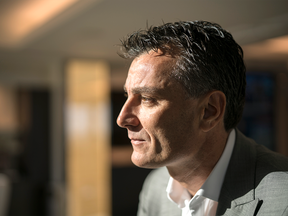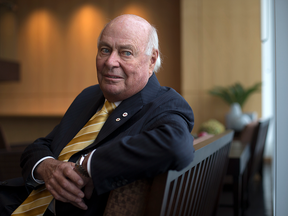Manulife CEO Roy Gori Seized Retirement Before Anyone Asked Him to Go
In a surprising move, Manulife Financial Corp.’s chief executive Roy Gori announced his retirement earlier than expected this week. Gori, 56, who has led the Toronto-based insurer and asset manager since 2017, revealed in an interview that he never intended to stay in the job so long that people would start wondering why he didn’t leave.
Inspiration from a Famous Cricketer
Gori cited the famous Indian cricketer Vijay Merchant as his inspiration for making this decision. According to Gori, Merchant once said, "Retire when they ask you, Why?, not Why not?". Gori stated that he was humbly hoping more people would be asking "Why?" about him.
Strong Successor and Business Momentum
Gori mentioned that the conditions were right for his retirement due to the presence of a strong successor lined up to take over in May. Phil Witherington, 47, currently head of the Asia division, will be taking over as CEO. Additionally, Manulife has great business momentum, partly thanks to a series of deals to de-risk its balance sheet.
De-Risking Deals
One such deal was announced on Wednesday, where Reinsurance Group of America agreed to reinsure $5.4 billion of reserves. This transaction will allow Manulife to release $800 million in capital, which it plans to return to shareholders through buybacks. Gori noted that this is the third de-risking deal signed by the company in less than a year.
Record Reinsurance Deal
The first such deal was a record-breaking agreement with KKR & Co.’s Global Atlantic Financial Group to reinsure $13 billion of reserves. This was followed by plans to reinsure $5.8 billion of Canadian policies with RGA Life Reinsurance Co. of Canada in March.
Improved Capital and Profitability
Gori pointed out that when combining these three deals, Manulife re-insured a total of $24 billion worth of reserves. As a result, the company was able to cut its long-term care reserves by about 20%, freeing up approximately $3 billion in capital and improving its return on equity.
Capital Release
While reinsurance deals lead to lower core earnings as the insurer no longer books revenue from the policies, offloading assets with a low return on equity improves overall profitability and reduces the amount of capital Manulife must hold under regulatory rules. This move is expected to boost the company’s stock value.
Stock Performance
Manulife shares gained 1.4% to $45.66 on Thursday, bringing its total return this year including dividends to more than 60%. Scotiabank analyst Meny Grauman noted that while the follow-on transaction was well-telegraphed, there were still lingering doubts about management’s ability to get it done.
Industry Analysis
Grauman stated that the success of this deal and the involvement of a younger cohort of long-term care reserves will help drive Manulife’s valuation higher. This move further validates Grauman’s bullish thesis on the company.
As Gori prepares for his retirement in May, investors are left wondering about the future of Manulife under new leadership. With a strong successor in place and a solid business momentum, it remains to be seen how the company will continue to perform in the market.









